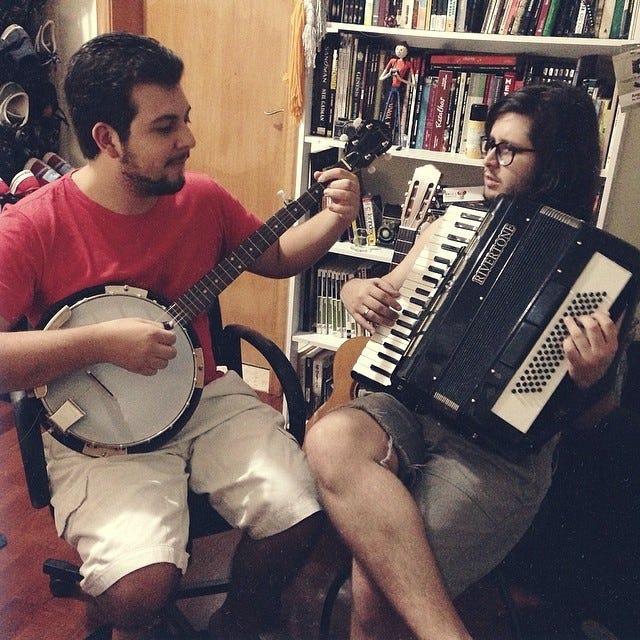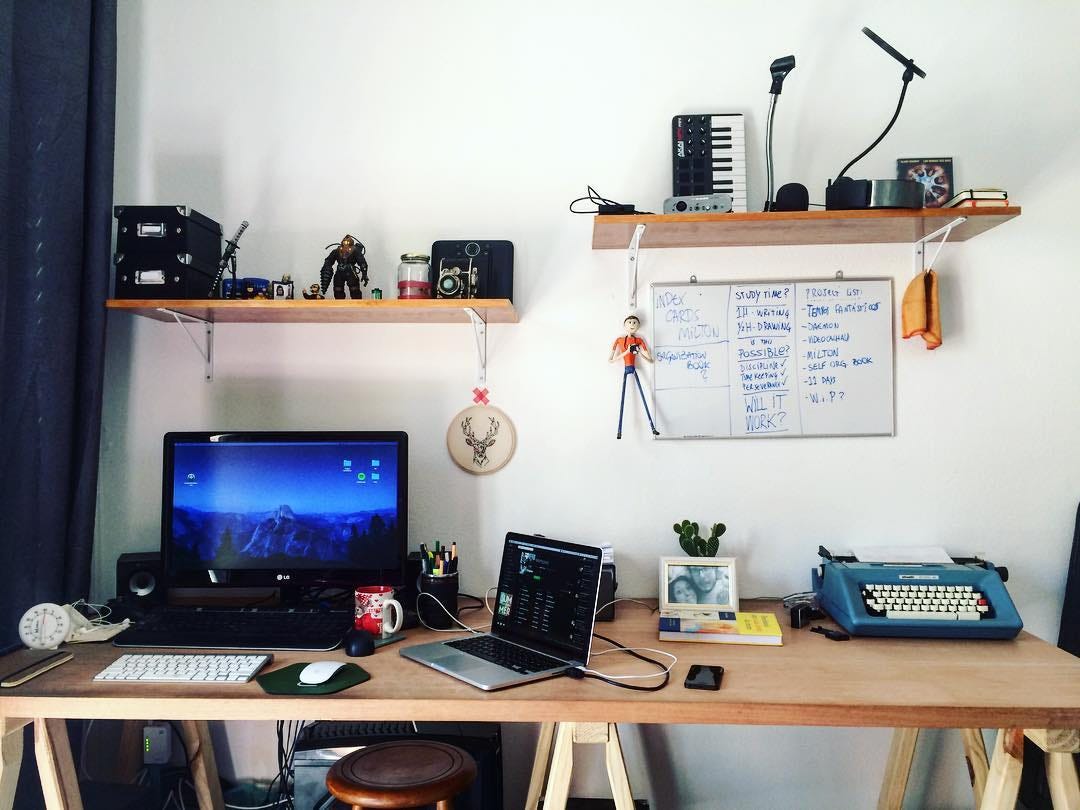Settling down takes time
Moving apartments, leaving things behind, creating new roots
Preface: the title comes from one of my favorite songs from my favorite band: The New, by Interpol.
I wish I could live free I hope it's not beyond me Settling down, it takes time One day we'll live together And life will be better I have it here, yeah, in my mind Baby, know someday you'll slow
My ex-wife and I shared an apartment in São Paulo downtown — we moved there when we married and decided to have our beautiful, long, and tranquil life there for years and years to come: forever, till death do us part, and all of that. We divorced 2 years later.
The apartment continued on our lives for a good time until we finally sold it. It was — and, believe it or not, still is — a topic for reflection.
Gabi Colicigno wrote in her newsletter — sadly, only in Brazilian Portuguese — about moving apartments and how that made her understand some critical topics. For instance, she says the constant moving made her know that there are things you like and things you actually need.
(All the quotes in this issue are free translations done by me of Gabi's newsletter)
This was the first lesson I had moving houses, and one I took with me through a dozen other place moves over the last 20 years: we hoard a lot, and moving is a great moment to evaluate what's really necessary (and important) and donate the rest to other people
I knew I'd take almost nothing from our apartment when Daia and I divorced. Unconsciously, since the beginning, I had made an effort to make the house as comfortable as possible for her. I never cared much about myself — I needed a space to have my computer and music stuff. The walls, floor, kitchen, living room... all hers.
The things hanging on the wall — 90% of them — were not just picked by Daia; most of it was created by her — from beautiful handmade embroideries to complicated original macramés. Decoration-wise, we had almost nothing that said "Angelo."
I knew this while living there, and it was even more real after the divorce when I moved out to a smaller apartment and took... books. I had to buy everything else.
After a year, I moved together with my then-girlfriend Janine. We went to a bigger apartment, so there was no need to sell or get rid of stuff. We had a great time in that place until it was time to split up. I moved to a 25-square-meter (if I'm not mistaken) apartment. I donated 1/3 of my books and most furniture and learned to live with less.
When I was a teenager, living on the farm with my parents, my bedroom was my kingdom. On the purple-painted walls, I scribbled important dates — my first kiss, my first car crash, my first sexual experience — and hung the covers of the CDs I enjoyed the most. When we moved, I felt a part of my soul left in that room. I tried to replicate this in our new house but couldn't. Why do that? To move and leave everything behind again?
Gabi speaks about this in her newsletter, and her writing resounded powerfully with me. She says:
I'm very reluctant to let things have my style; putting pictures on the walls, buying furniture and decoration, creating an environment I like. That's because, at least in the last years, I was always thinking about the next move — to a cheaper place; with fewer people to share the house with; because the lease ends.
Reading this, I spoke a "me too" so loud Gabi might've heard it in Brazil— from Germany.
It doesn't matter: every house I've ever lived in was never the last place, so why bother? The lease was ending sooner or later. As I constantly moved after roughly a year, painting the walls or doing any renovation was bullshit. "I'm moving soon," I thought.
Then, I moved countries.
This was absurd. I had to find someone else to rent my apartment to avoid a fee, sell all my furniture, and move to the other side of the world with a maximum of two suitcases in two months.
Leaving things behind is not the worse.
I'm used to this feeling of loss, of letting things go.
I successfully sold the most expensive stuff and ended up donating the rest. I gave away a shameful shitload of books — all my collection: more than ten H.G. Wells, more than ten Asimovs, a dozen RPGs, and at least 20 graphic novels — Sandman Definitive Edition included. I brought only three books with me to Germany. It was painful but bearable.
Leaving things behind is not the worse. I'm used to this feeling of loss, of letting things go. This is a common theme in my life: sometimes things end, and you have to deal with that, even if things have terrible outcomes. Kobayashi Maru.
The problem is always living with this feeling that the subsequent loss is around the corner — be it the death of a loved one, the end of a friendship, or the complete change of lifestyle. I'm always on alert for these changes, almost welcoming then.
After living in a furnished apartment for six months, I now have a flat with a two-year contract. I never previously respected my leases, but I want to make it work this time.
One of the first decisions I took was: I would only have what I needed and wanted. I accepted a donated cupboard and closet because I liked their looks and because they were crucial furniture. I will not get just any sofa: I will wait, save money, and get a good one. If playing video games is my main hobby, why settle with a used, shoddy TV? I will save and buy a good TV.
I will not fear putting nails on the walls to hang paintings, photographs, and illustrations. I want this house to look like me: weird, loud, and slightly cringey. I want to hang my Tetragrammaton flag in the living room and put my LGBTQIA+ flag in the entrance corridor.

Like Gabi, I don't want "a whole year getting by and the frames still over the cupboard. I don't want to get inside my room and feel that anyone else could live there."
I feel that if I make this place mine, I will suffer when I leave — like those purple walls, which I still miss. Maybe growing these roots is what I'm missing, what's making me move so much and so fast. Perhaps it's time to settle down and create a nest for me: quality furniture, a custom illustration of The Fifth Element, and a bed that fits seven people.
It's time to make this place mine.





